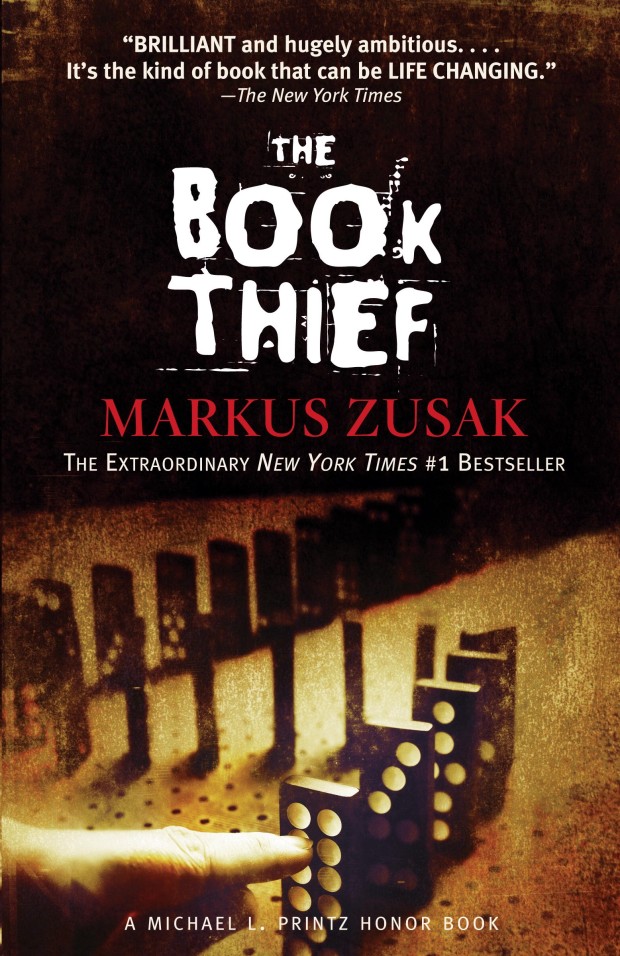After decades of books and films examining the Holocaust, largely from the point of view of liberating soldiers, then from the survivors, now we seem to have reached a time when the experiences of ordinary Germans can be looked at in a fresh light. John Boyne’s The Boy In The Striped Pyjamas has already made the transition from book to film, and shortly the adaptation of The Book Thief directed by Brian Percival (About A Girl, Pleasureland) will arrive in UK cinemas.
The Book Thief tells the story of Liesel Meminger, a foster child who suffers the death of her brother and picks up a book as a memento even though she cannot read. Liesel has a hard life in war time Munich, allied bombing raids are a constant threat and food and basic supplies are in scarce supply. Liesel turns to burglary, she becomes the book thief of the title in order to feed herself.
Zusak narrates the story through the eyes of Death. Death walks through the horrors of the war and Holocaust, seeing everything and wishing fervently for some time away from his dispiriting, God-given task. I hesitate to say something as hackneyed as ‘an emotional roller-coaster’ in a review, but, The Book Thief made me smile and it brought me to tears, parts of it are magical, others are wretchedly sad and Zusak does not flinch from visiting the full terror and loss of war upon his well realised cast of characters.
As well as re-examining the role of ordinary Germans during WWII, this is primarily a book about books, and about the uplifting and persuasive power of the written word to educate, illuminate and lift readers out of their humdrum lives and troubles. Zusak provides literary empowerment embedded within a story about the magic of the written word, and done in such a way that you hardly notice the pedagogic stance amidst the brilliance of the storytelling.
Publisher: Random House



















No Comments